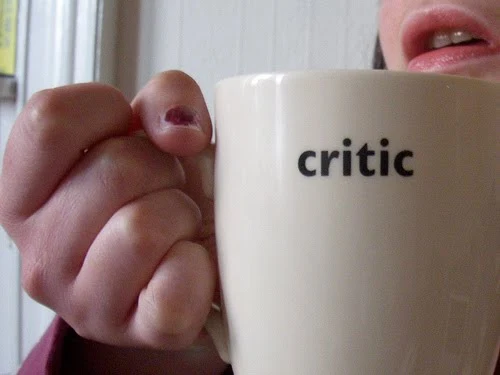
By Tim HandorfAs someone who has probably been hacking away at the rather tyrannical vocation of writing for some time now, you are probably quite familiar with critics. They come in all shapes and sizes, some are more vociferous than others, and they will either help or harm you, or accomplish a fine mixture of both. If you read any renowned writer's thoughts on critics, you'll see that for the most part, among author circles, critics are a reviled bunch.
But at the same time, critics are a necessary evil. And picking the right person to revise your work and give thoughtful suggestions is a tricky business. Jonathan Carroll, a renowned American novelist and short story writer of the magical realist oeuvre, put it perfectly when he said, "I find you write with one person in mind. Usually for me that one person is my wife, because she's my most severe critic and understands best what I'm trying to do."
In a nutshell, Carroll's words are the key to finding the perfect critic. You have to select someone, whether it's a fellow writer, a relative, or a friend, who understands exactly what you are attempting to accomplish through your writing. This is absolutely critical, because if you select any run-of-the-mill critic, who has her own ideas about what good writing should be, she will encourage you to change your vision such that what you're writing becomes something that is no longer truly yours.
On the other hand, you do need someone who isn't afraid to tell you, "Man, this really sucks." Of course, we writers need constructive criticism--criticism that inspires us to become better, not just cuts us down--so it's best to find someone who doesn't sugarcoat but who is also not just in the business of insulting you.
The best way to go about finding the perfect critic is to ask several people--of different ages, professions, and backgrounds--to read your work and tell you what they think. Steer clear of those who say "Yeah, this is great. I'm really impressed." Just as insults can destroy your writing, so too can vague praise. Narrow down your critics by how they criticize. Are the revisions they're suggesting make sense? Are they asking you about what your goals are with the plot, characters, etc.? Does their understanding of your work align with your artistic vision?
Once you find one or two critics to look over your stuff, always be grateful and patient. Even if a critic is your best friend, she does have her own life, too, so don't rush her, and always express gratitude by doing a kind deed for her in return. This way, your critic will be encouraged to give you consistent feedback.
And, above all, always strive to make it an enjoyable and rigorous process. Revising isn't always particularly fun, but if you are getting dynamic, pointed feedback, it can be an experience that inspires you to keep on writing. Everyone needs a small audience while drafting to keep you on track. Be careful about who you choose, and you'll be surprised what a blessing a critic can be.This guest post is contributed by Tim Handorf, who writes on the topics of online colleges. He welcomes your comments at his email Id: tim.handorf.20@googlemail.com. Flickr photo courtesy of lismInterested in contributing a guest blog post of your own? Check out the guest blogger guidelines.